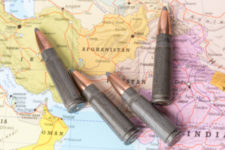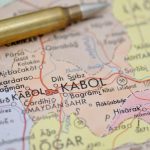Investigation Into Alleged War Crimes by Australian Soldiers Commences

The recent AFP raids were conducted as a result of a complaint by the Department of Defence about the leaking of documents which contain harrowing accounts of alleged war crimes perpetrated against civilians by Australian soldiers in Afghanistan.
The former legal officer of the Australian Special Forces who leaked those documents, David McBride, told Sydney Criminal Lawyers in June of this year:
“If the government breaks the law, something needs to be done about it. You can’t have it like in Nazi Germany, where people said, “I was just following orders.” That’s how we get holocausts.
Government employees have got to use their moral compass to say, “No. That’s wrong. Enough is enough.” And be prepared to stand up for it.”
Mr McBride previously wrote in an article for the SMH, “The point came where there was no doubt in my mind that a line had been crossed… and lives were being cynically wasted.”
After receiving numerous reports of atrocities committed by Australian soldiers, the lawyer sent “a politely worded complaint” to his superiors, which he says fell on deaf ears.
Mr McBride was arrested in September last year and is facing multiple criminal charges for exposing the truth – an act which he believes is in the public interest.
He is adamant the leaked documents do not contain information that would jeopardise military operations or put Australian lives at risk, and says the Australian public has a right to know illegal conduct undertaken in their name.
The Afghan files
The leaked ‘Afghan files’ contain horrific accounts of crimes allegedly perpetrated by Australian military personnel over several years.
They document the “ethical decay” of Australian Special Forces personnel between 2009 and 2013, to the point where they were engaging in the indiscriminate slaughter of unarmed Afghan civilians, failing to report the killings and covering-up their actions.
They contain reports and photographs of slain children, including a boy who was shot dead as he was collecting figs, the murder of an unarmed civilian father and his six-year-old child, the killing of a detainee who was left alone with an Australian soldier, the detention of two unarmed civilian men who were handcuffed and then shot dead in a room used to store almonds, the throwing from a ledge and shooting to death of another unarmed civilian man, to name a few of the alleged “unlawful killings” of “innocent civilians”.
They speak of the “desensitisation” of Australian military personnel and their “drift in values”, expressing concerns that, over time, they had developed a “warrior culture” with a disregard for human rights and our obligations under international instruments such as the Geneva Convention, which Australia has ratified.
The investigation
Now, three-years after the leak, a team representing the Inspector-General of the Australian Defence Force is in Afhanistan’s capital Kabul to interview witnesses of the alleged crimes.
The team is headed by NSW Supreme Court Justice Paul Brereton, who is a Major-General in the Army Reserve, and will attempt to ascertain the veracity of the allegations with a view to making recommendations regarding the prosecution of alleged offenders.
The team will also investigate several alleged murders by Australian military personnel that are not contained in the ‘Afghan files’.
International war crimes
The Criminal Code Act 1995 (Cth) lists 45 separate offences that are considered international war crimes, and can be prosecuted in Australia regardless of where they are committed overseas.
The offences span from section 268.24 to 268.68 of the Act and include wilful killing (which attracts a maximum penalty of life imprisonment), attacking civilians (life imprisonment), attacking undefended places (life imprisonment), inhumane treatment (25 years imprisonment), wilfully causing great suffering (25 years), torture (25 years), unlawful confinement (17 years) and destruction and appropriation of property (15 years).
To establish the offences, the acts must have been committed in the context of international armed conflict.
The Inspector-General of the ADF is expected to make recommendations regarding criminal charges once his team have finalised their investigations.






